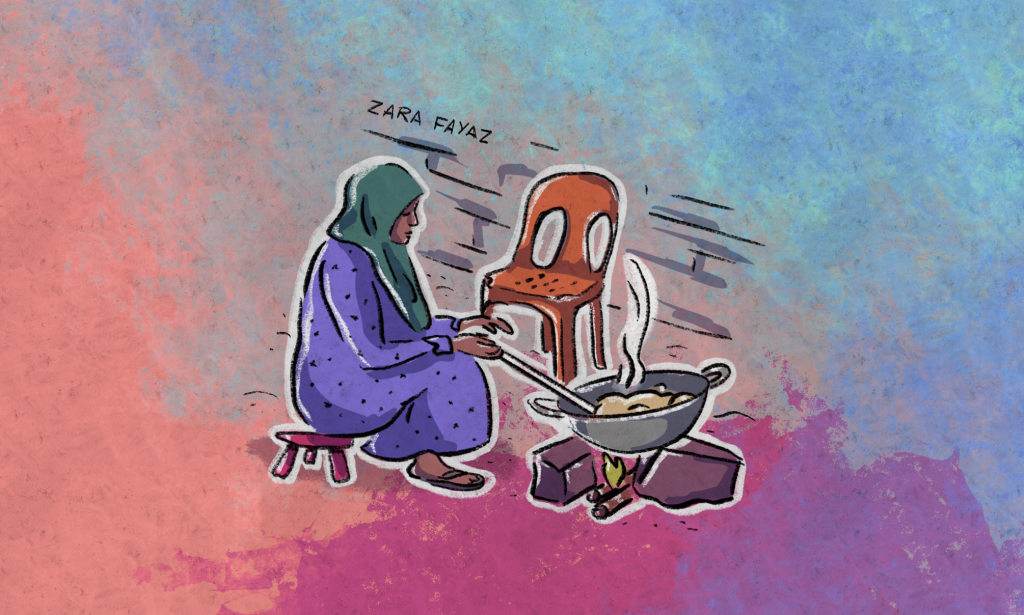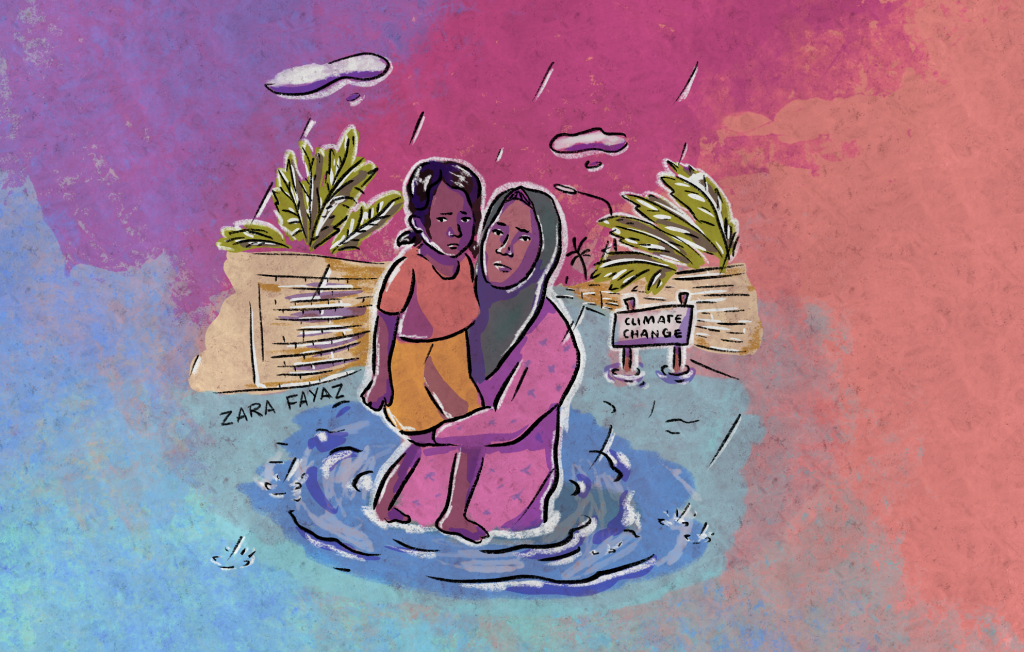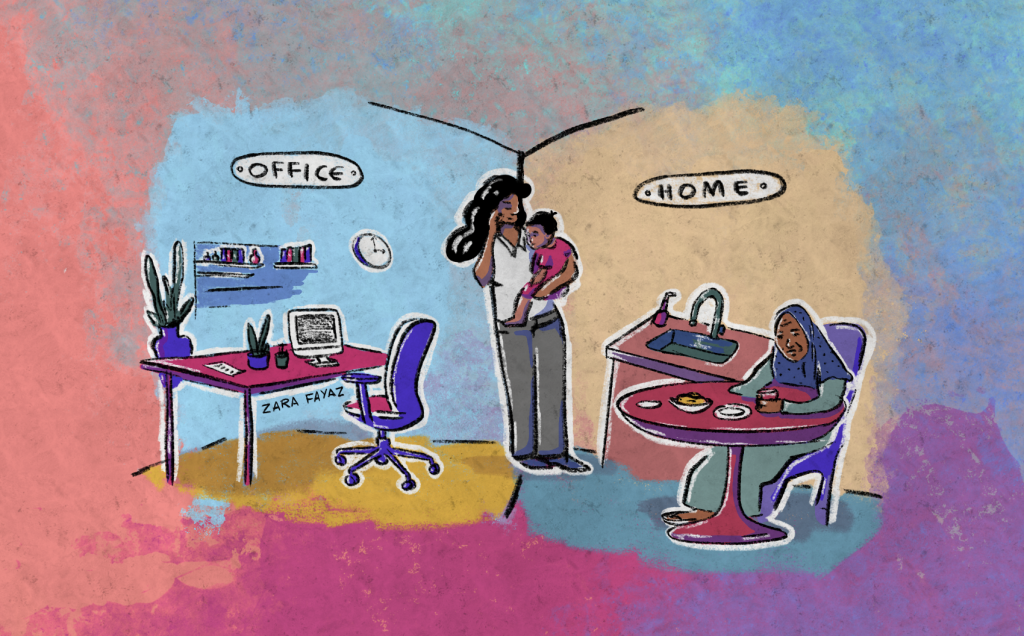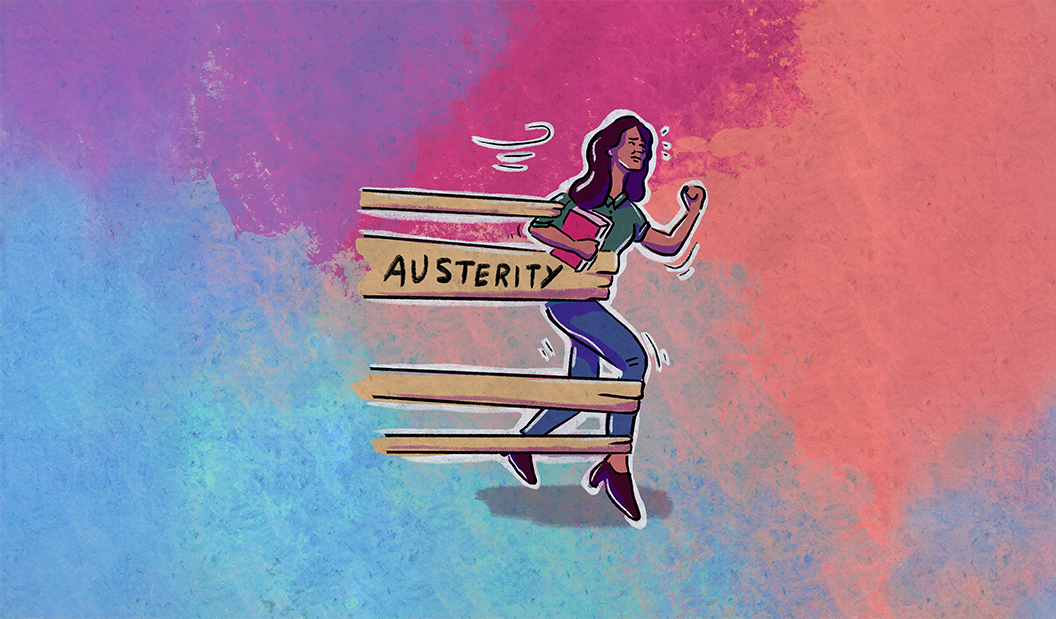October 2024, Malé: Austerity measures now grip 6.7 billion people globally, with international institutions identifying nearly 80 low- and middle-income countries in either debt distress or at risk of falling into it. The harshest effects fall on women, who face a triple burden of reduced public services, increased unpaid care work, and diminished economic opportunities.
Public debt and its management through traditional measures cast long shadows over lives and livelihoods, where it becomes a story of daily survival playing out in countless households and communities across our nations. While these economic policies affect entire populations, their impact is far from uniform—they cut deepest into the lives of those already vulnerable, deepening existing inequalities and creating new ones.
This is not merely a fiscal narrative for governments alone. There is a very real human cost of debt and austerity measures, where a nation’s approach to managing its obligations determines not just economic indicators, but the fabric of daily life and the future prospects of entire communities.
The Maldives now stands at this critical juncture, where mounting debt obligations and looming austerity measures threaten to exacerbate existing vulnerabilities. With the government beginning to roll out its spending cuts, now is the time to understand the implications for the nation’s most vulnerable populations – including women – against the backdrop of existing inequalities, deep economic crisis and acute climate risks.
The Human Cost of Austerity Measures

In more than 100 countries worldwide, the amount needed to service debt is projected to surpass what these nations require for non-climate sustainable development needs. Factor in the climate-related needs, and the amount balloons exponentially, pushing many nations into a devastating choice between meeting their debt obligations and investing in their people’s future. Faced with this impossible bind, nations often accept IMF-mandated austerity programmes that force deep cuts to essential public services. These measures strip governments of their core mandate and capacity to provide for, and protect the wellbeing of their citizens.
Ultimately, perhaps most damning is that these measures have failed to deliver their promised economic revival. Our indebted nations remain trapped in cycles of stunted potential and mounting obligations, while the human cost of these failed prescriptions continues through generations.
The IMF’s Human Rights and Gender Blindness: A Critical Assessment
The International Monetary Fund’s approach to debt management reveal a persistent disconnect between fiscal targets and human realities, particularly its impact on women. Despite its 2022 “gender strategy,” the institution’s prescribed measures continue to overlook gender-specific impacts and human rights obligations in favour of immediate fiscal targets.
This oversight manifests in several ways. Standard austerity measures mandate budget cuts without meaningful gender analysis – social programme reductions proceed without assessing women’s dependency rates, infrastructure spending cuts ignore gender-specific usage patterns, and public sector downsizing disregards female employment concentrations. Current frameworks also overlook women’s unpaid labour contributions and neglect the informal sector where women predominate.
These blind spots create “false economies”—where apparent savings in one area generate hidden costs elsewhere. When maternal healthcare faces cuts, health systems shoulder heavier long-term burdens. As childcare support diminishes, women’s workforce participation drops. When girls’ education receives less investment, future economic potential contracts.
These systematic failures in the IMF’s approach will have relevance for the Maldives, where public debt and economic vulnerabilities intersect with climate risks and existing gender inequalities.

Maldives’ Fiscal Crisis: First Steps into Austerity
Years of borrowing have caught up with the Maldives. Facing external debt payments of over $1 billion by 2026, the administration has already begun implementing austerity measures—even while avoiding the term—as spending cuts become inevitable.
This week, President Mohammed Muizzu announced a 50% cut to his own salary and a 10% reduction for all political appointees as part of what he termed “special measures.” The government has also introduced a series of revenue-generating reforms: higher Tourism Goods and Services Tax (TGST), increased airport development fees for foreign travellers, elevated green tax, and higher duties on tobacco products. Households across the country report rising utility costs, despite no official announcements regarding subsidy reductions.

While the public has largely welcomed the salary reductions, they represent only a fraction of what’s needed to address the Maldives’ mounting debt crisis. The government’s carefully worded “special measures” signal the inevitable onset of more stringent austerity policies.
As the Maldives introduces these measures and enters negotiations with creditors and international agencies, these systemic failures in the traditional approach take on new urgency. Without careful attention, the country risks replicating the same damaging patterns that have undermined women’s economic security across the Global South.
The Hidden Toll: How Austerity Measures Will Deepen Gender Inequalities in Maldives
The impact of austerity measures extends far beyond mere numbers on a balance sheet. Its effects permeate every aspect of women’s lives. In the Maldives, these measures will specifically disadvantage women in these ways:
- Erosion of Essential Services: Cuts in public services disproportionately burden women, who become society’s default caregivers. Women are routinely forced to step in as unpaid caregivers of last resort, filling critical gaps in essential services left by austerity measures.
- Social Protection Reductions: The scaling back of social protection programmes—including support for single mothers, disability assistance, and elderly care—disproportionately affects women who rely disproportionately on these programmes for basic survival.
- Healthcare Access Barriers: When public healthcare funding is cut, women often face greater challenges as they typically have higher healthcare needs (including reproductive care) and lower average incomes to pay for private alternatives.
- Employment Vulnerability: Women, who comprise a significant portion of the public sector workforce, face heightened income-insecurity as government positions are eliminated.
- Economic Opportunity Gaps: Reduced investment in development programmes particularly affects women’s chances for economic advancement and financial independence.
- Violence and Safety Risks: One in three women in the Maldives report experiencing violence in their lifetime, with one in four women subjected to intimate partner violence. These alarming rates of gender-based violence will be exacerbated as households face increased economic strain, while support services simultaneously decrease.
- Female-Headed Household Strain: Female-headed households, which represent about 45% of Maldivian households, face compounded vulnerabilities under austerity. These households, already operating on tighter budgets and with fewer economic buffers, will be hit particularly hard by the simultaneous reduction in public services and increased living costs. With women solely responsible for both income generation and caregiving, any cuts to public services or social support create an impossible burden of trying to maintain household stability with ever-diminishing resources.
- Climate Vulnerability: Three-fourths of countries facing debt difficulties are also highly climate vulnerable, creating a compound crisis for women. As resources are diverted to debt servicing instead of climate adaptation, women—who often manage household resources—face intensified challenges. In the Maldives too, this will further burden women: managing and coping with reduced resources, while maintaining economic security amid environmental stresses.
- Intersectional Vulnerabilities: The impacts of these measures will not be uniform across women but will vary significantly based on overlapping identities and circumstances: from urban to the islands, age, and across socio-economic backgrounds. These intersecting factors determine not just the severity of impact, but also women’s capacity to access alternatives and cope with economic pressures.
Conclusion
The impact of austerity measures across indebted nations reveals a fundamental truth: economic policies are never gender-neutral. When governments slash public spending, women bear a disproportionate burden through reduced social services, healthcare cuts, and diminished economic opportunities. As the Maldives navigates its debt challenges, it must avoid such policy blind spots before they cascade into broader societal problems. The country must move beyond traditional metrics of debt sustainability to examine how each policy decision reverberates through individual lives, households and communities.
Maldives must prioritise policies that protect and empower vulnerable groups, including its women. By placing human lives and livelihoods at the forefront of policy decisions, the Maldives can pursue debt sustainability while building a more equitable and resilient society.



